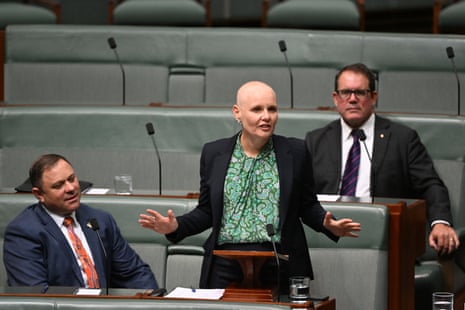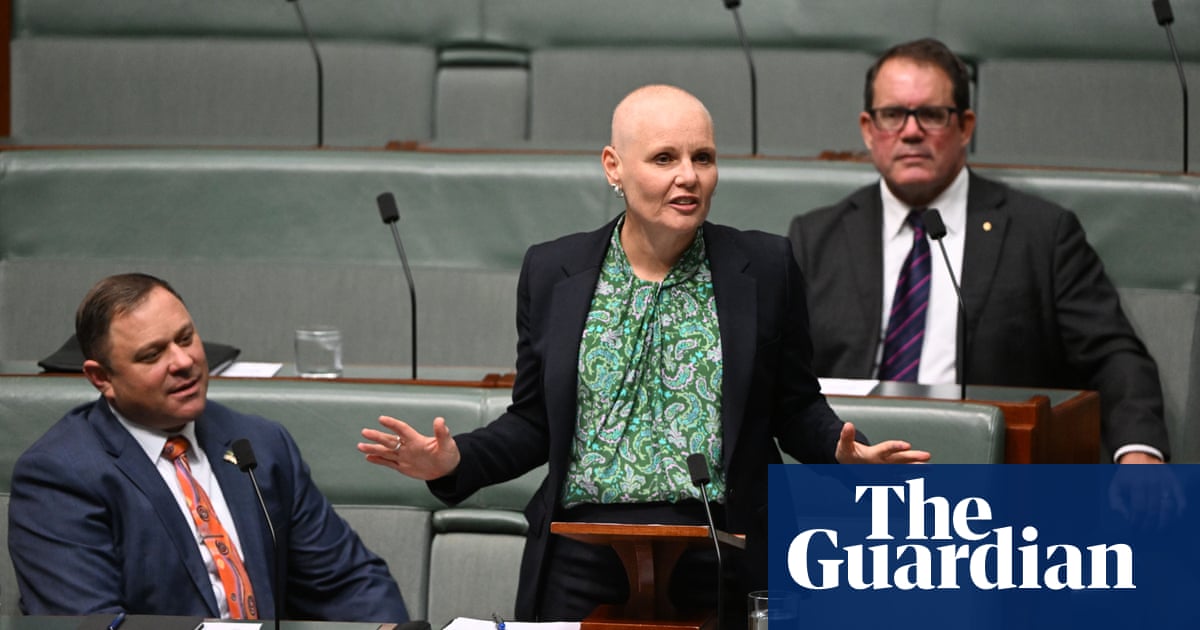
Ads for online gambling should be banned in Australia within three years, inquiry recommends
Plan gives broadcasters time to find alternatives while preventing ‘another generation from experiencing escalating gambling harm’, Labor MP says
Ads for online gambling should be banned across all media and at all times within three years to combat the manipulation of an “impressionable and vulnerable audience”, a parliamentary inquiry has recommended.
After months of debate about betting ads, including the prime minister, Anthony Albanese, labelling them “annoying” and the opposition leader, Peter Dutton, calling for a ban on ads during sports matches, the inquiry has provided a blueprint to shut them down entirely.
Of the 31 recommendations in the report “You win some, you lose more”, released on Wednesday, the call for a phased, comprehensive ban on online gambling advertising within three years is the most consequential.
The House of Representatives social policy and legal affairs committee chair, the Labor MP Peta Murphy, said this would “give major sports and broadcasters time to find alternative advertisers and sponsors, while preventing another generation from experiencing escalating gambling harm”.
-
Sign up for Guardian Australia’s free morning and afternoonemail newsletters for your daily news roundup
While the communications minister, Michelle Rowland, has agreed that the “status quo isn’t good enough” on gambling advertising, it is unclear whether the government will adopt the recommendations in full. Fierce lobbying is expected from commercial broadcasters, who warned the inquiry that free sports broadcasts could be cut as a result of a ban.
The inquiry called for the government to implement a comprehensive national strategy on online gambling harm reduction, supported by national regulation, an online gambling ombudsman, a harm reduction levy on online wagering service providers, a public education campaign, more independent research and improved data collection.
Murphy said: “Gambling advertising and simulated gambling through video games is grooming children and young people to gamble and encourages riskier behaviour. The torrent of advertising is inescapable.”
“It is manipulating an impressionable and vulnerable audience to gamble online.”
The inquiry also recommended a crackdown on illegal gambling websites, stronger consumer protections for licensed online gambling, a requirement for wagering service providers to verify their customer’s identity before accepting bets from them, a ban on inducements and a legislated duty of care.
Murphy said the committee had recommended improved supports and treatments for those experiencing gambling harm, because services were “overwhelmed” and stigma was “preventing many from seeking help”.
“The committee supports the Australian government’s proposed changes to the classification system to reduce the risk of harm from social casinos and loot box features in interactive games.
“We have recommended the classification scheme be consistently applied across online app stores, that a simulated gambling warning label be developed, that minimum consumer protections be applied to games and better education for young people, parents, caregivers and teachers about simulated gambling.”
The committee inquiry was set up in September after a referral from the social services minister, Amanda Rishworth.
after newsletter promotion
Pressure has been growing to regulate gambling advertising, with a push from the Greens for a ban taken up by the independent MP Zoe Daniel, Labor MPs and in a more limited form by Dutton, who used his budget reply to push for a ban on TV ads during game time and an hour either side.
In May Albanese told Guardian Australia he finds the barrage of betting advertisements during sporting matches “annoying” but did not outline his preferred policy solution, instead waiting for the review.
The government has already pursued new mandatory harm-minimisation messages on advertisements, banned the use of credit cards for online wagering and restricted gambling-like activity in video games.
In February Rowland came under pressure after revelations she accepted campaign donations from a gaming company before the May election. She told parliament all donations were compliant with disclosure laws.
Rowland said the government’s record on harm minimisation was “strong” and she was committed to reducing harms from online gambling. “We’re committed to reducing harms from online gambling and we’re implementing a national self-exclusion register,” she said.
The Guardian announced a new global policy this month to reject gambling advertising. The policy applies to all online, audio, video and print ads, and all forms of gambling other than lotteries.
